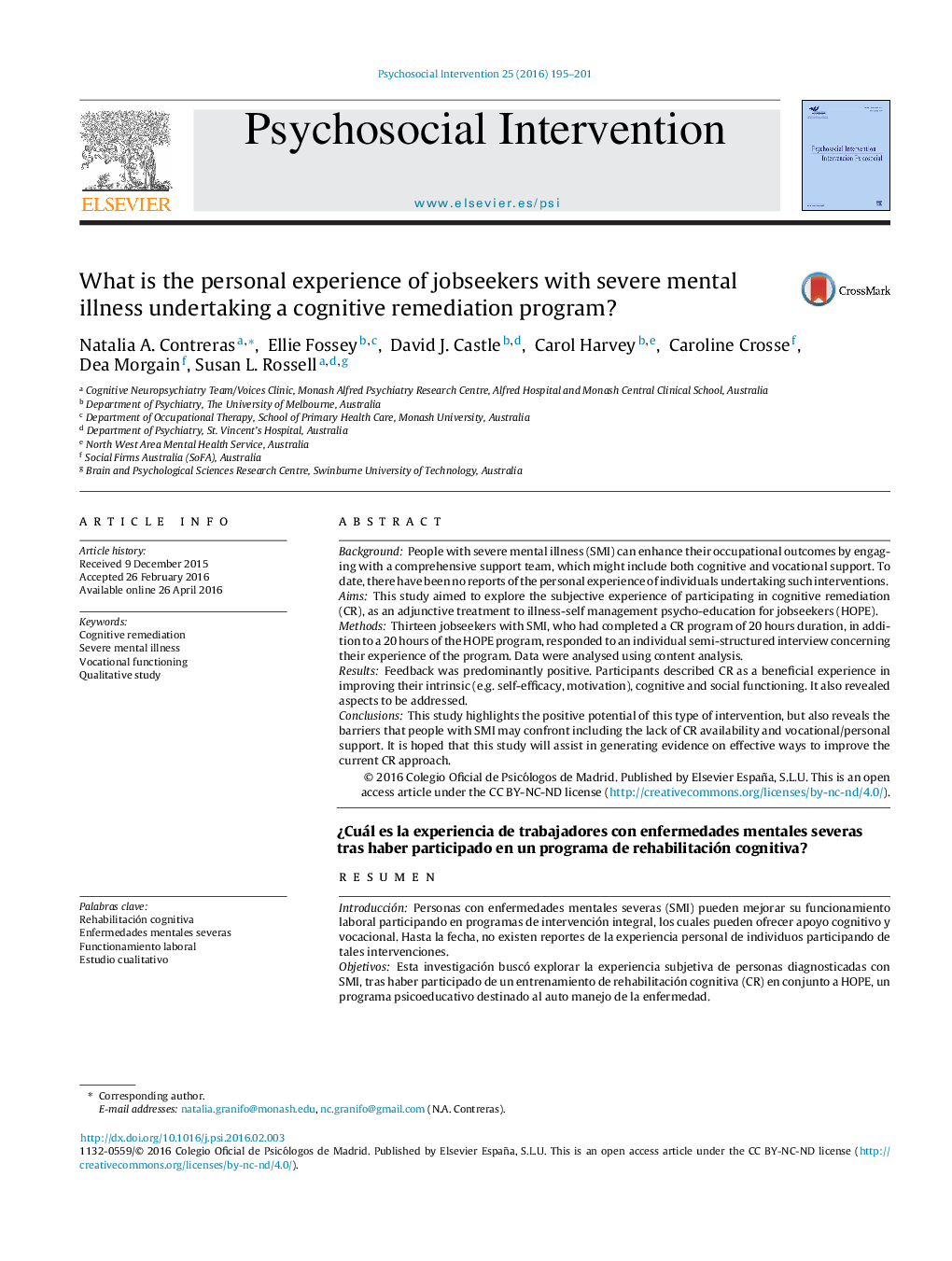| کد مقاله | کد نشریه | سال انتشار | مقاله انگلیسی | نسخه تمام متن |
|---|---|---|---|---|
| 5036601 | 1370183 | 2016 | 7 صفحه PDF | دانلود رایگان |
BackgroundPeople with severe mental illness (SMI) can enhance their occupational outcomes by engaging with a comprehensive support team, which might include both cognitive and vocational support. To date, there have been no reports of the personal experience of individuals undertaking such interventions.AimsThis study aimed to explore the subjective experience of participating in cognitive remediation (CR), as an adjunctive treatment to illness-self management psycho-education for jobseekers (HOPE).MethodsThirteen jobseekers with SMI, who had completed a CR program of 20Â hours duration, in addition to a 20Â hours of the HOPE program, responded to an individual semi-structured interview concerning their experience of the program. Data were analysed using content analysis.ResultsFeedback was predominantly positive. Participants described CR as a beneficial experience in improving their intrinsic (e.g. self-efficacy, motivation), cognitive and social functioning. It also revealed aspects to be addressed.ConclusionsThis study highlights the positive potential of this type of intervention, but also reveals the barriers that people with SMI may confront including the lack of CR availability and vocational/personal support. It is hoped that this study will assist in generating evidence on effective ways to improve the current CR approach.
ResumenIntroducciónPersonas con enfermedades mentales severas (SMI) pueden mejorar su funcionamiento laboral participando en programas de intervención integral, los cuales pueden ofrecer apoyo cognitivo y vocacional. Hasta la fecha, no existen reportes de la experiencia personal de individuos participando de tales intervenciones.ObjetivosEsta investigación buscó explorar la experiencia subjetiva de personas diagnosticadas con SMI, tras haber participado de un entrenamiento de rehabilitación cognitiva (CR) en conjunto a HOPE, un programa psicoeducativo destinado al auto manejo de la enfermedad.MétodosTrece buscadores de empleo diagnosticados con SMI completaron un programa que incluyó 20 h de CR, además de 20 h de HOPE. Tras la intervención, todos los participantes respondieron a una entrevista individual semiestructurada, diseñada para indagar sobre su experiencia tras el programa. Los datos se analizaron mediante análisis de contenidos.ResultadosEl feedback fue predominantemente positivo. Los participantes describieron la CR como una experiencia beneficiosa en el mejoramiento de su funcionamiento intrÃnseco (por ejemplo, autoeficacia, motivación), cognitivo y social. El análisis además reveló aspectos a mejorar.ConclusionesEste estudio destaca el potencial de este tipo de intervención. También revela los obstáculos que personas con SMI pueden llegar a enfrentar, como son la falta de disponibilidad de CR y el escaso apoyo profesional/personal. Se espera que este tipo de investigación favorezca el generar nueva evidencia sobre maneras efectivas para mejorar el actual modelo de CR.
Journal: Psychosocial Intervention - Volume 25, Issue 3, December 2016, Pages 195-201
